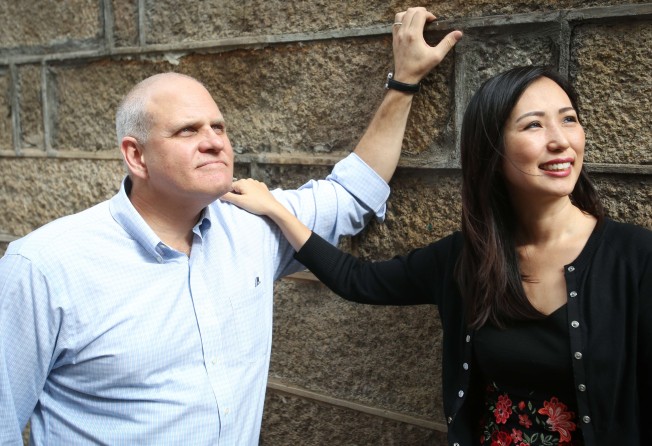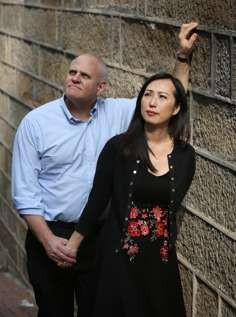Local Hongkongers need to join fight to abolish slavery, husband and wife activists say
Couple who spent 70 days in the US raising awareness about human trafficking call for a change in mindset to recognise problem in the city

Sylvia and Matthew Friedman, a couple of activists based in Hong Kong who spent 70 days in the US raising awareness about modern-day slavery, say it’s necessary to engage locals in this fight. They also noted that NGOs based in Hong Kong have to change their approach to the government.
“It’s time to have local Chinese people rise up” against human trafficking, said Sylvia, a journalist and co-founder of the 852 Freedom Campaign in Hong Kong, a justice movement to end slavery.
The Hong Kong government has been criticised for not passing laws that effectively protect victims of human trafficking and forced labour. This year, the city’s rating was lowered to the Tier 2 Watch List in the latest Trafficking in Persons report by the United States. However, local authorities have repeatedly denied the problem.
“We have made presentations to 38,000 people, but many of them were English speakers. For the Hong Kong government to perhaps have a better sense of community support for this, we need Cantonese-speaking people to know about this issue,” said Matthew, chief executive officer of Mekong Club. His organisation aims at motivating the private sector to find solutions for the fighting human trafficking in Asia.
The former United Nations officer, who has been based in Asia for more than 25 years, said that modern slavery needed to be explained, as many people still had old concepts in mind.
“If you go to a Chinese group and you say you want to talk about slavery, you shut them down already, because they don’t believe in the concept. So you have to start by saying ‘have you seen this situation?’ That’s what we are calling slavery now,” he said.
His wife Sylvia, a Canadian whose family hails from South Korea, noted that their current aim was to raise awareness and provide training to Cantonese and Putonghua speakers of all ages. “We need to change the mindset of locals. I think that through this grass roots impact, local people can start talk to their own government instead of us – as foreigners – talking to them,” she said.
Matthew, originally from the US, said: “If the movement is going to take off, it’s not going to be because of us. We are the catalysts. We have to invest in local people understanding and accepting responsibility.”
In their opinion, the collaboration among non-governmental organisations as well as between them and the local authorities should be improved. “I think the NGO culture in Hong Kong uses Western methods, but to work with the Hong Kong government it has to be in an honouring way ... because that’s the Asian culture,” Sylvia said.
She noted there were many slaves in Hong Kong – particularly sex slaves – “but it’s hidden, it’s hard to find. Criminals don’t want us to find them. This is what we need to do, to find these actual slaves. Our method is to work hand in hand with the government.”

The Global Slavery Index, released in June, ranked Hong Kong among the 10 top slave territories in Asia.
“The Hong Kong government is working on this, but they may not advertise or promote what they are doing. I can confidently say that they have brought in certain people to help them to deal with this issue,” Sylvia said.
As a former UN officer, Matthew worked with mainland Chinese leaders to put policies and procedures in place and identify victims. “What’s interesting about China is that the senior-most level really understand what’s needed, but translating that to 1.3 billion people is somewhat of a challenge.”
Talking about the former British colony, “I would generically say that different countries are addressing the problem at different times. Hong Kong, I would describe it perhaps behind some other locations, but we are optimistic that over time there will be more momentum.”
He said “we, collectively as a world, are not making much of a difference. Until we accept this as a collective responsibility, the number of victims we help is going to continue languishing at 0.2 per cent”.